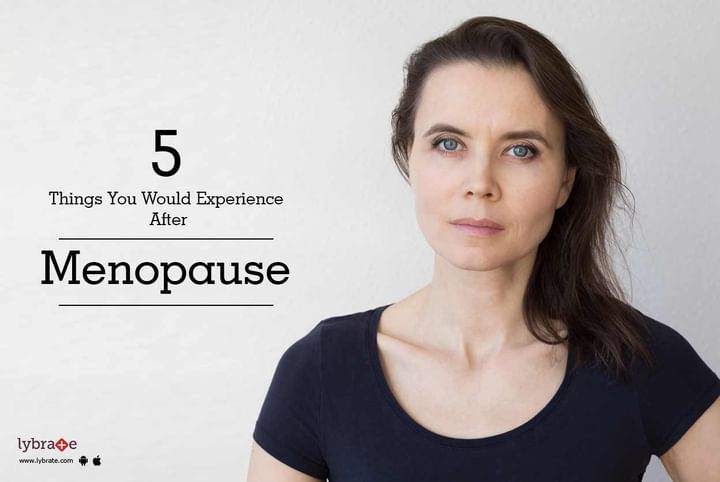Get the App
For Doctors
Login/Sign-up
Last Updated: Jan 10, 2023
BookMark
Report
5 Things You Would Experience After Menopause
Dr. Usha. M. KumarGynaecologist • 36 Years Exp.Diploma in Advance Endoscopy, Royal College of Obstetricians and Gynaecologists (MRCOG), MS, MBBS
Menopause is the loss of a woman's natural ability to conceive as she approaches the age of 50. The levels of the female sex hormones estrogen and progesterone begin to drop disrupting the ovulation and menstruation cycles. There are also associated symptoms of menopause, such as weigh gain, low sex drive and hot flashes. You can also take the package for Living Healthy - Woman.
Here are 5 other problems you may experience after menopause:
- Increased level of cholesterol: The human body comprises two types of cholesterol primarily: High Density Lipoprotein (HDL) and Low Density Lipoprotein (LDL). The former is known as "good cholesterol". Estrogen helps to keep your HDL high and LDL low. After menopause, the levels of LDL or "bad cholesterol" naturally go up even if HDL levels remain unaltered. Regular physical exercise can prevent the rise in the levels of LDL.
- Dry skin: Estrogen is responsible for controlling the production of oil in your body. As estrogen levels fall, the oil secretion falls too. This leads to dry and scaly skin, especially skin of the face and arms. You can use moisturizers and creams to prevent flaking of the skin.
- Hair fall: This is also a result of dry skin. The skin of the scalp dries up and cannot provide nourishment to the hair. This causes hair fall. The variability in the levels of the hormones also causes deficiency of certain proteins that are essential for the nails and hair. Use mild herbal shampoos to deal with the problem. Chemical treatment procedures often do more harm than good.
- Unsocial tendencies: The irregularities in the production of the female hormones have an impact on your emotional and social behavior. You may want to spend more and more time by yourself instead of socializing with friends and relatives. These are not symptoms of depression or any other psychological condition. It is simply an emotional transference period.
- Drowsiness: While insomnia is one of the most symptoms of menopause, the situation somewhat reverses after some time. Menopause causes changes in the body weight, hormone cycles and metabolism. All of these, in turn, affect your energy levels. You feel extremely sleepy during the day, especially in the afternoon. However, sleeping during the day can cause sleeping problems at night. So, do not take a nap for more than half an hour during the day.
If you wish to discuss about any specific problem, you can consult a specilized gynaecologist and ask a free question.



+1.svg)
